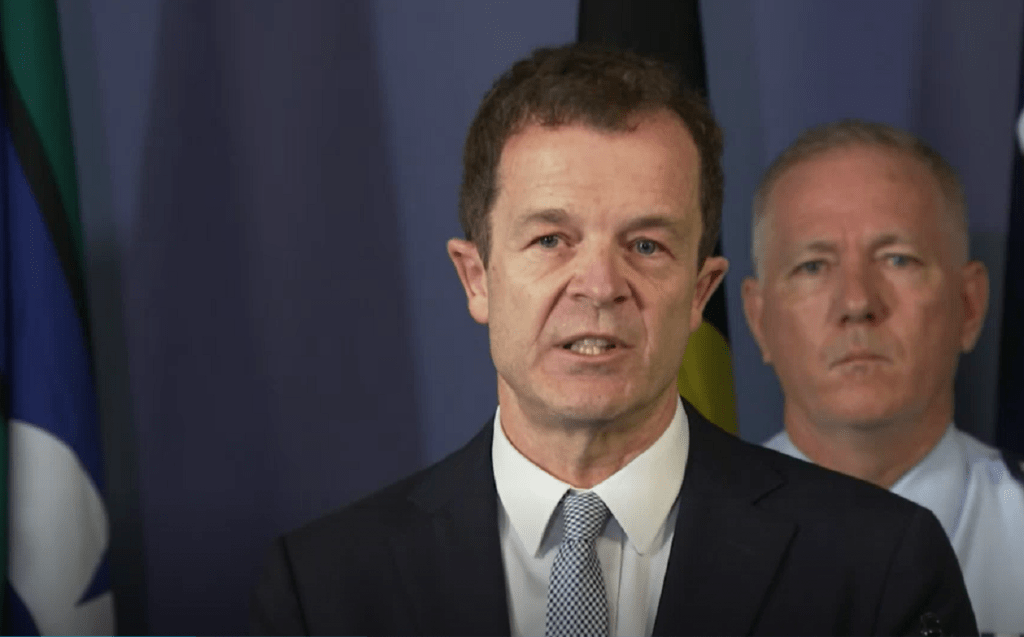NSW has announced sweeping changes to its sexual assault laws and will be implementing nation-leading reform that will make it easier to prosecute perpetrators.
On Tuesday, NSW Attorney-General Mark Speakman announced an affirmative consent model will be introduced in NSW, which could see defendants in sexual assault cases convicted unless they have taken active steps to obtain consent.
Speakman said the NSW government was adopting – or adopting in principle – all forty-four recommendations of the NSW Law Reform Commission’s 270-page review of consent, and would also be taking extra steps.
“There cannot be consent unless the party in question has said something or done something to communicate consent. That’s a communicative model. In other words, you just can’t assume through lack of resistance or lack of protest that consent has been given,” Speakman said.
“As to the mental element of the perpetrator, we’re going one step further than what the Law Reform Commission recommended. To have a reasonable belief, the accused will have to have done something or said something, reasonable in the circumstances, to ascertain consent.”
Speakman said this change goes further than what the law reform commission recommended and further than the law in Tasmania, which only talks about “resonable steps”.
“We want to make it clear that a thought process is not such a step,” he said. “A reasonable step has to be an act, or something said to ascertain the complainant’s consent.”
⚖️An honour today to announce #consent law reform with @smitchellmlc, @nswpolice and survivor-advocate @SaxonAdair.
— Mark Speakman (@MarkSpeakman) May 25, 2021
⚖️I aim to have a bill before Parliament next session to enshrine #affirmativeconsent in #nswlaw.
⚖️Thanks to all who made it possible.https://t.co/phY9bZ59bS pic.twitter.com/cqeNm7aj1M
Speakman also announced that the definition of consent would be improved, and that self-intoxication of the accused is not an excuse for failing to form a reasonable belief.
“We’ll be making it clear, reaffirming that consent is something that’s given voluntarily and freely by agreement,” he said. “That it can be withdrawn at any time, that consent to one sexual activity is not consent to any other sexual activity and that self-intoxication of the accused is not an excuse for failing to form a reasonable belief.”
“This is about holding perpetrators to account but more than that, it’s about changing community behaviour. It is about having a society where people ask simple questions, ‘Are you consenting?’
“Where consent is affirmative, where consent is sought and not just assumed through lack of protest or lack of physical reaction.”
An historic announcement. Affirmative consent legislation, new jury directions, commitments to education programs @SaxonAdair @MarkSpeakman pic.twitter.com/EZP6aisYqp
— Bri Lee (@bri_lee_writer) May 25, 2021
Saxon Mullins, Director of Advocacy at the Rape & Sexual Assault Research & Advocacy, said she was taking the time to celebrate this win for suvivors of sexual assault. Mullins’ own case and subsequent advocacy led to the NSW Law Reform Commission review on consent, and she stood beside Mark Speakman as he announced the reforms on Tuesday.
“In 2017 I walked out of the NSW High Court feeling lost, alone and powerless. Four years of my life culminating in one word: ‘dismissed’,” she said in a statement.
“I didn’t consent, the court acknowledged that I wasn’t consenting, and yet somehow that wasn’t enough.
“I can never go back and change the outcome of my case, but we have changed how some stories will end.”


